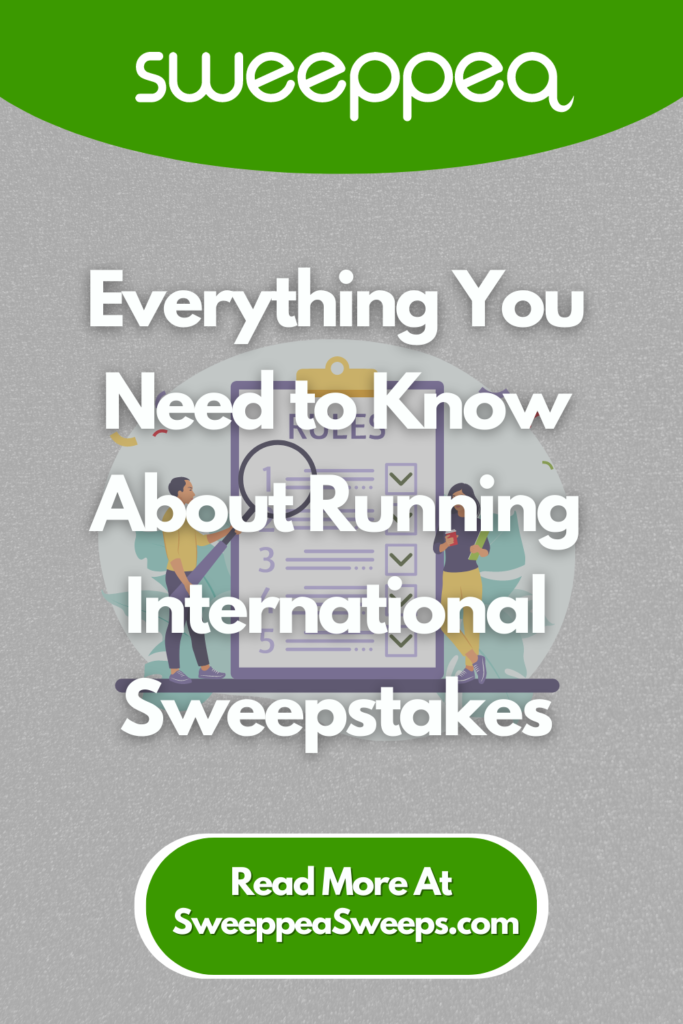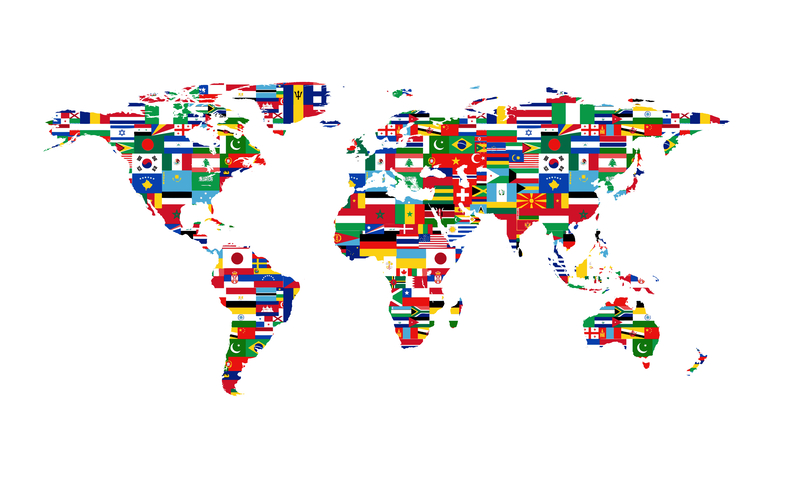
Depending on the country you’re running the international sweepstakes in, you will have to adjust your Official Rules and process. For example, in Mexico, a government authority must witness the delivery of any prize worth more than $5,000. In Italy, a local government official must hand-select the sweepstakes winners.
Those are a few of the specific elements to consider when planning international promotions. Within the United States, there’s a variety of sweepstakes and contests laws by state.
According to Bureau Works, globalization is now a significant marketing theme. Globalized marketing, including global sweepstakes, is now an important strategy for many companies. Expanding internationally can benefit the brand by increasing its awareness, market reach, and revenue.
Sweepstakes are a great way to reward your customers and generate excitement for your brand. Even though the promotions are cautiously regulated worldwide, some international sweepstakes are sometimes used as scams.
This article will discuss the most important things you need to know about running international sweepstakes
International Sweepstakes vs. Contests: Why Does it Matter?
One of the first things you need to decide when running international sweepstakes is whether you want to run a contest or sweepstakes.
The core difference between a contest and a sweepstakes are as follows:
Contests are games of skills and winners are selected by judged criteria.
Sweepstakes cannot be based on skill and winners are selected randomly.
Contests are usually easier to manage because they don’t require as much paperwork and have fewer legal restrictions. However, many countries prohibit games of pure chance, so you may have to get creative with your contest rules.
Contests are usually easier to manage because they don’t require as much paperwork and have fewer legal restrictions. However, many countries prohibit games of pure chance, so you may have to get creative with your contest rules.
Sweepstakes are more regulated but can be a great way to generate excitement, awareness, and sales for your brand.
What’s the difference between an international contest and a sweepstakes? Many countries, like Canada, prohibit games of pure chance as they are considered a form of gambling. In this case, requiring winners to demonstrate a specific skill like answering a special but simple math equation helps convert the sweepstakes into a contest for legal compliance in Canada.
Your Promotion Can’t Be Open to Everyone, Everywhere
In Sweepstakes promotion, one of the most common misconceptions about international sweepstakes is that they can be open to anyone, anywhere in the world. However, this is not the case. Due to the wide variety of international sweepstakes laws, it is not possible to run a promotion that is open to everyone. That’s why you must adhere to each country’s laws and regulations for these promotions.
Other countries, such as the United Kingdom, have less strict regulations. However, you still need to consider data protection and tax laws. As a result, it is essential to consider which countries you want to open your promotion carefully.
You Need to Translate All Materials into the Official Language

You will need to translate all materials into the official language of each country you are targeting. For example, you can translate your materials into Spanish when you run a sweepstakes in Puerto Rico to capture Spanish speakers.
Puerto Rico is an excellent happy medium between international and local audience you can target. Sweeppea has previously run successful CPG promotions in Puerto Rico and can provide you with a complete version of your official rules in Puerto Rican Spanish.
You will also need to comply with local laws and regulations, which can vary widely from country to country. For example, if you are running a promotion in the European Union, you need to provide translations into all of the official languages of the EU.
Make sure you hire a sweepstakes administrator that is experienced in creating rules in different languages. Legal jargon varies a lot internationally.
You Need to Offer Smaller Prizes
A higher volume of smaller prizes is better than large prizes for navigating international sweepstakes laws. Some countries may have specific customs requirements, duties, and taxes based on the value of the specific prize that deters participants from entering the promotion.
Offering many smaller prizes increases the odds of winning, which helps influence more people to participate in the sweepstakes.
It is also important to remember that prizes’ average retail value varies from country to country which can make the process of running the promotion even harder.
Localized Official Rules Matter

The most common international sweepstakes law to follow is to ensure the official rules are translated into the country’s official language. It includes the official rules, entry forms, and other communications related to the promotion.
If your sweepstakes administrator cannot translate the official rules due to language barriers, you should factor in the cost of the translation of the official rules.
Sweeppea is fully equipped to provide a translation service to Spanish for promotions in Puerto Rico and the United States.
Conclusion
International sweepstakes are a great way to reach a global audience. Make sure you abide by these tips to run a successful promotion.
For more information on how Sweeppea can help you with your next sweepstakes, contact us at support@sweeppea.com or call us at 305-505-5393.

